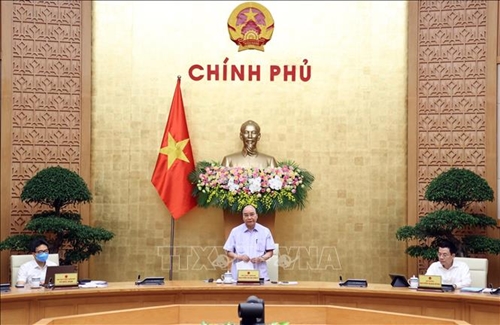August 27, 2020 | 11:46 (GMT+7)
PM orders improvement of legal environment for e-government building
Prime Minister Nguyen Xuan Phuc requested ministries and localities to soon address shortcomings in legal environment for building the e-government, while chairing an online meeting on August 26.
    |
 |
|
PM Nguyen Xuan Phuc speaks at the meeting. |
He noted that the rate of online public services remains low, which is unlikely to reach 30 percent at the year’s end without new ways of implementation. Some ministries and provinces could only reach less than 10 percent, an alarming level, he added.
The deployment of national database that creates a foundation for the e-government has been slow, especially on land issues, the PM said, adding that it is too late to wait until 2025 as proposed by the Ministry of Natural Resources and Environment.
He urged the Ministry of Information and Communications to map out a training project and a national digitization road-map for localities, as well as complete a draft on the development strategy of the digital government for 2021-2025, with a vision to 2030, in the third quarter of this year.
The Ministry of Public Security was tasked to speed up the building of a decree on the protection of personal data, then submit to the Government for consideration in 2020.
From 2021, the Government will consider conducting e-government ranking for the 63 cities and provinces nationwide, he revealed.
Vietnam ranked 86th out of the 193 countries and territories by the e-government development index (EGDI) in 2020, climbing two places from two years ago, according to the 2020 e-government survey conducted by the United Nations. It ranked sixth in Southeast Asia, behind Singapore, Malaysia, Thailand, Brunei and the Philippines.
Source: VNA